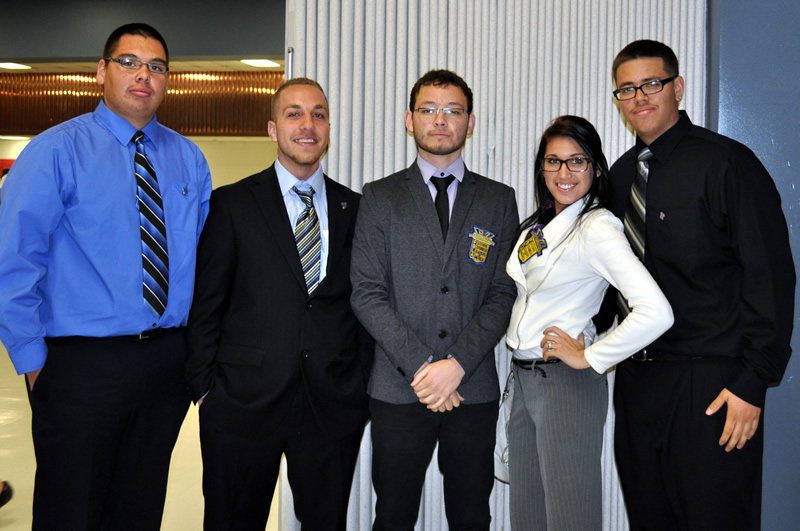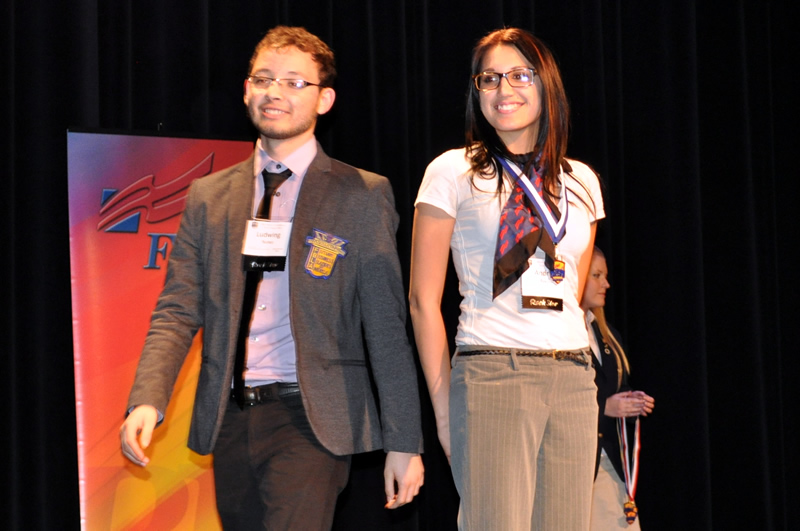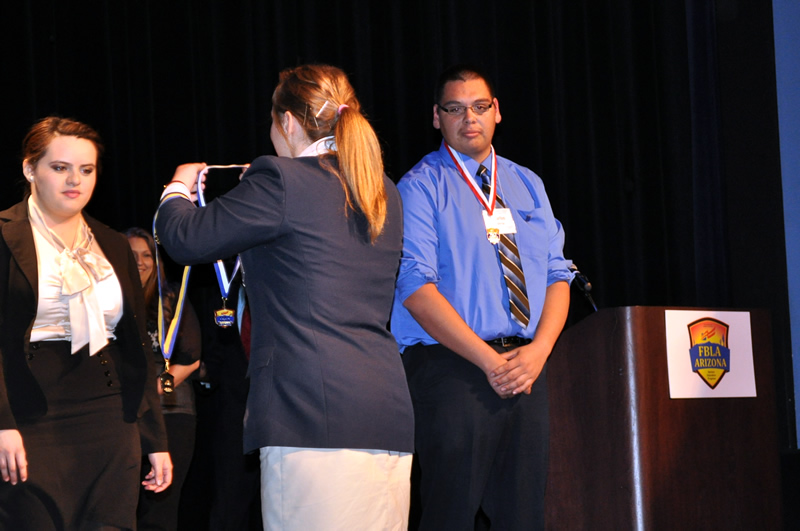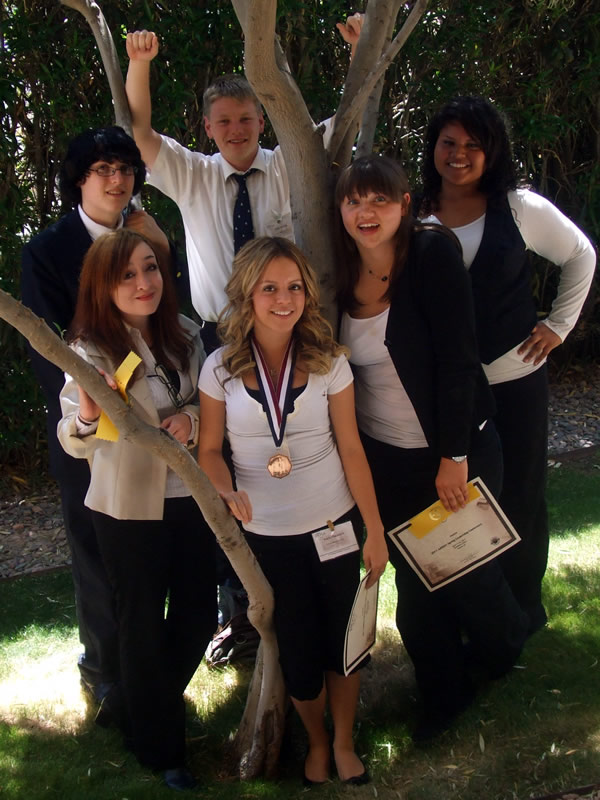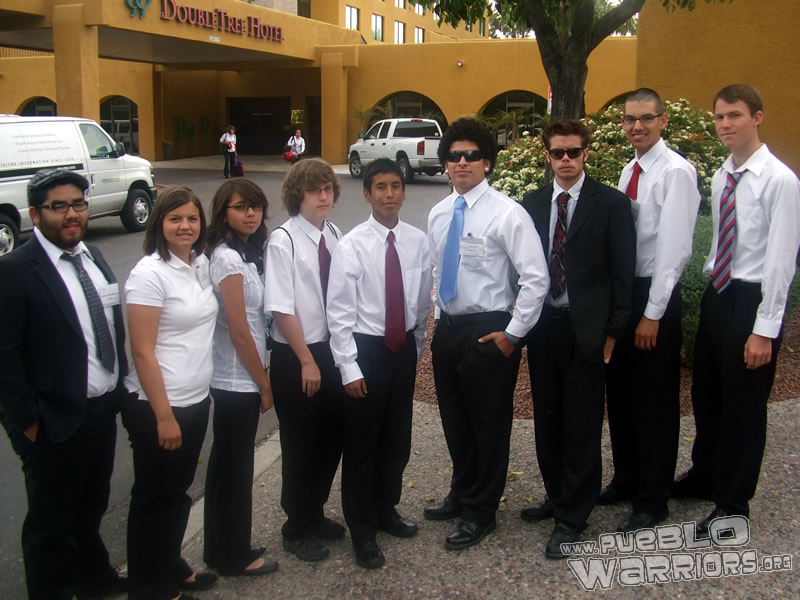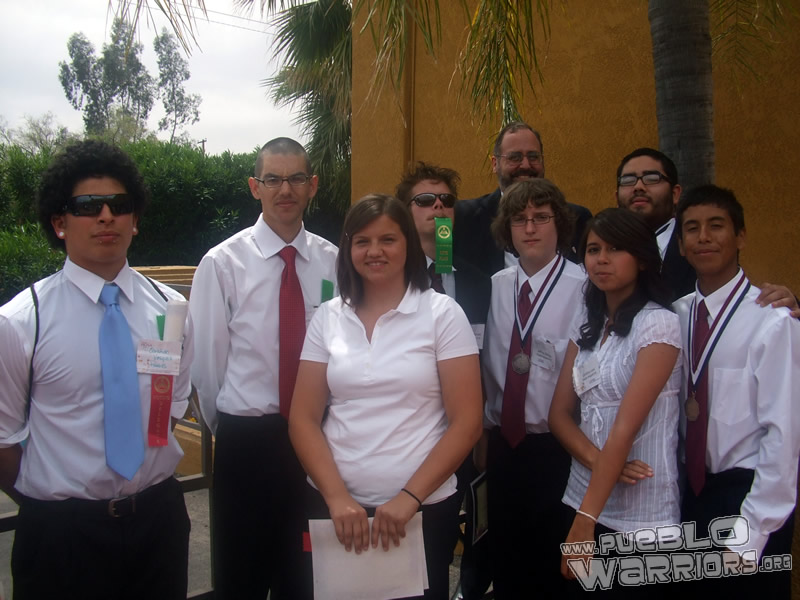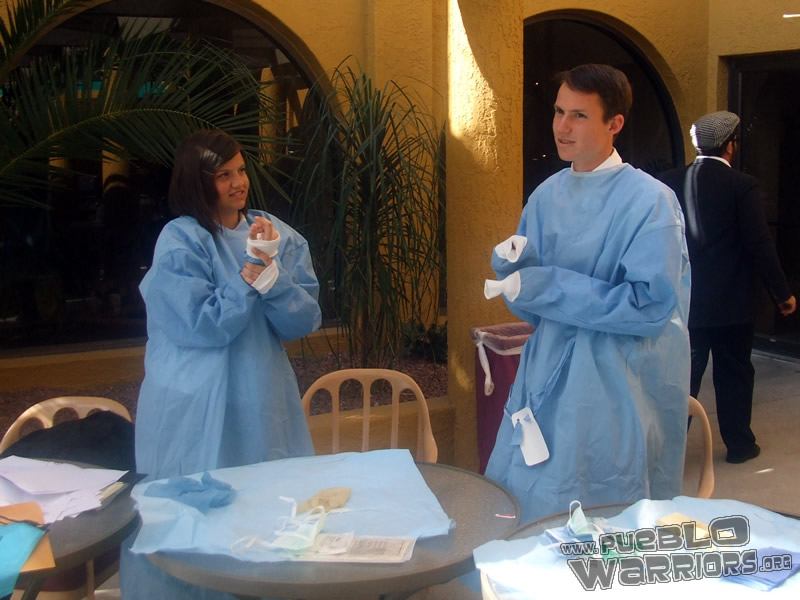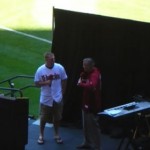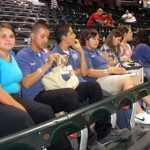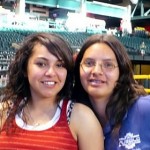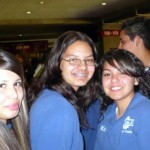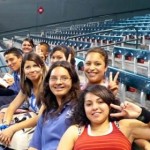On Saturday January 31st, twenty eight Pueblo Sophomores attended a Holocaust Education Program at the JCC. They heard life stories from survivors who retold the horrible truth of the Holocaust. As one survivor, Bill Kugelman told his life story, students were in complete silence and brought to tears at times. Bill was also brought to tears. Although he had told his story times before, he said that his “heart was bleeding” as he recounted the sadness, grief and inhumanity of the Holocaust. He mentioned that he did not like to read about the Holocaust, watch movies about it or discuss it, but that he allows himself to be torn apart by retelling his experiences so that we would not forget it and would stand up when an injustice is occurring. “I do it for you. I allow myself to be torn apart because you have to hear it.”
Students were struck when he showed them the number that the Nazi’s had tattooed on his arm. Isabel Jimenez said that for her, this was the saddest part of his story, “when he showed us where they tattooed his number on his arm, and he no longer had a name.” Many students were shocked at the role that education played in making the monstrosity of the Holocaust possible. They were able to look at children’s books which spouted Anti-Semitism. Another student, Jasmine Magdellano was struck by one woman’s story. She recounted watching her mother being taken away from her because she could not walk after being transported for five days in a cattle car. Her mother was tossed into a truck by SS guards and driven away. This was the last time that she saw her. Although these sophomores have been learning about the Holocaust and have read Night, many commented that it sounded almost unreal. Derek Gunnels said that he was surprised at how similar Bill Klugelman’s story was to what he read in night. What really stood out to him was the idea that one of the worst violations of the Holocaust was the fact that it stripped one of their humanity. Bill Kugelman made this point, as did Elie Wiesel in Night. A member of the audience asked Bill how he regained his humanity. He explained that it was only through time, through rubbing shoulders with other humans and through finding support.
The overall message that unified the survivor’s stories was the fact that hate was the root of this inhumanity. This is what hate does when it is allowed to fester and grow. We hear the figures so often- over eleven million were killed in the Holocaust. Six million of those were Jews. Mr. Kugelman pointed out that when we hear those numbers, we are not sure what they mean. But that every one of those million-every one of those people had a family, had a husband, a wife, a mother a father, a son, a daughter, a brother, a sister. Every one of those murdered lives is precious and lost. Even just one life is significant, whether it is a million or 1. This stood out to me.
As we’ve watched the atrocities of Darfur unfold, I wonder, is this what it was like? Around the world, people “heard stories” of the atrocities that occurred in the Holocaust as they were occurring. Even prior to Hitler unleashing WWII, they knew that particular groups were being targeted. But who took action to prevent the stories from multiplying- to prevent the victims from multiplying? Was there a unified organized international movement to help? No. There wasn’t. In fact, at the Evian Conference, European nations closed their borders to Jewish refugees. Hitler scoffed at this and the Holocaust was allowed to occur. It was only brave individuals who attempted to organize and do whatever they could to help at least one person and in turn helped generations. There were political reasons as to why a nation could not help. Some refugees that arrived off the coast of Florida (Cuba) were turned away and sent back to Europe, only to be placed in concentration camps. Whether someone is Jewish, Sudanese, Mexican, Christian, Muslim, Palestinian- a life is a life. We should do what we can to help each other. I hope that my students pulled this idea away from what they’ve learned. Allowing bullying, harassment and hatred to occur only aids the oppressor. It is what allowed the Holocaust to occur.
Below is a summary of Bill Kugelman’s life:
BILL KUGELMAN was born in Sosniwice, Poland in 1924 where he lived with his brothers and sisters. Following the German invasion, the family was forced into a single room in the Srodula Ghetto. In 1942 Bill’s family was sent to the Annaburg labor camp in East Germany. In 1944 the Kugelman family was sent to Auschwitz/Birkenau. From here, his mother and sisters were sent to the Ravensbruck Concentration Camp. Bill and his brothers were sent to Landsberg Labor Camp, a sub camp of Dachau, where his oldest brother was killed. After being evacuated to Allach, another sub camp of Dachau, Bill and his brothers were liberated. (taken from the JCC website)
[Via Andrea Ayala]
